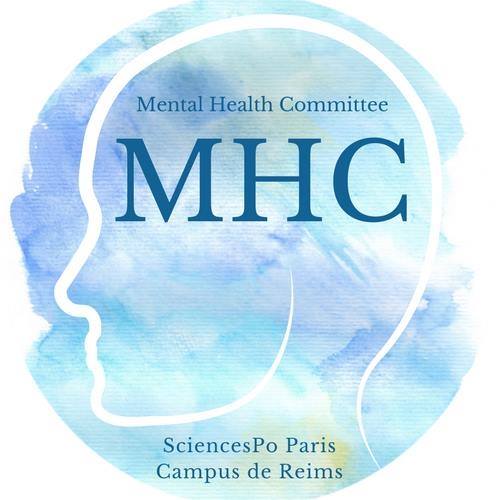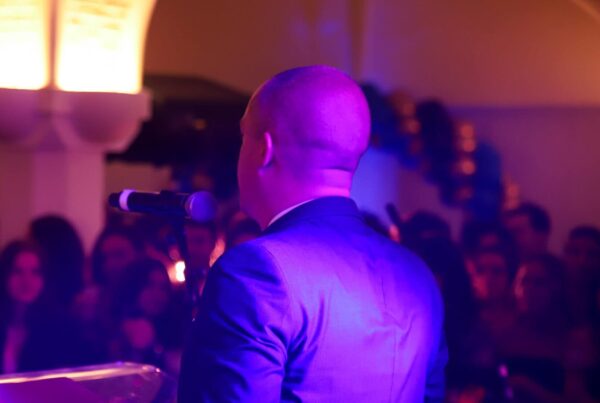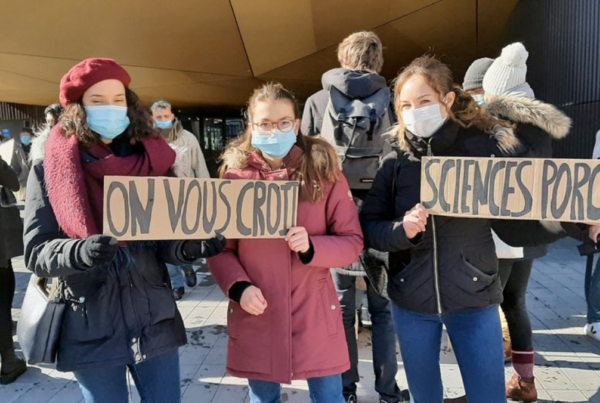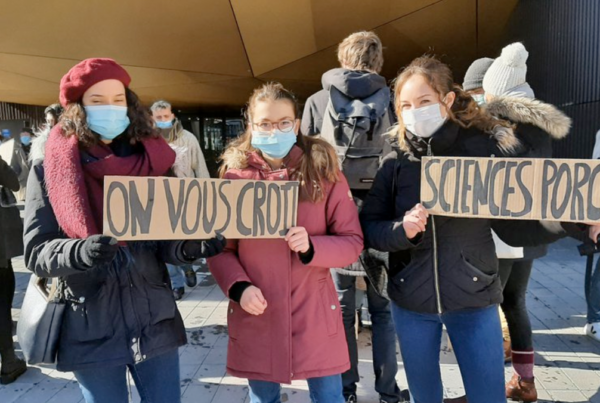By Mariam Ben Slama
Mónica Villalón and Isabelle Aletheia Ava-Pointon, founders of the Mental Health Committee, took refuge on a rainy fall day between the walls of the old building of Sciences Po to talk about the founding of their association and the work they are doing regarding mental health on campus.
Ava-Pointon began the interview by stating the three main purposes of the association. “First, we contribute to the main general well being, we also help students with mental health problems and issues, and we collaborate with the administration in order to get them to provide better support on campus.”
In describing the association’s collaboration with the administration, while also trying to maintain a certain level of independence, Villalón explained that the Mental Health Committee is a student-led association, which means that they mainly work with students but they “also collaborate with the student representatives and all the other associations to contribute to the wellness on campus. We [the Mental Health Committee] actually have a wellness week coming up in partnership with all the Bureaus (BDE, BDA, AS, SPE), the Feminist Society, SAGA and many others.”
The nature of the events organized by the association greatly varies. Ava-Pointon noted that “for the moment, we have tea talks twice a week every Tuesday at 7:30 and Friday at 5:30 at 85 rue du Barbâtre. We drink tea, talk about whatever. Every session has a theme. For example last week was social anxiety and the week before was about healthy routines. It is a way for us to create a safe space for anyone that want to talks and is looking for support. Recently, you must have seen us in the Glass Hallway; we made a petition signing to have a better mental health assistance on campus.”
Concerning future events, Isabelle smiled and told me about the “Wellness Week” which is going to include “a bunch of activities during lunch in the hallway and after school that revolve around healthy eating, exercise, stress reduction and relaxation.” She adds that “we will have more tea talks, mental health experts coming and talking about important topics as well as extra yoga session and a movie showing. All these events are directed towards the comfort and welfare of the students.”
The reactions from students to these activities have been very positive. Isabelle acknowledged that the association has “…definitely gaining more visibility. Judging by Yik Yak, which we know is a weird measurement, people realize it’s an issue and they know that the Mental Health Committee exists and there are people who they can talk to so even if they don’t come to the tea talks, they know that there is someone that can listen to them and it is a first step to know that.”
Villalón further explained that the association recieves Facebook messages from students. She notes that “often, these messages are questions about professional help. We are obviously not professionals, we are a support system, but we connect people with doctors that can help them with their struggles.”
Hearing about all these initiatives that have been recently created to assist students and comfort them, leads one to wonder why the administration has not taken on a more active role in this mission.
Both Villalón and Ava-Pointon explained that “it’s because there is this french mentality that the administration is just educative, that it is only here for academic purposes and nothing else. While in the UK and in other places, it goes beyond that because school is not just for classes and grades, it’s also about learning life skills and that involves physical and mental health. That’s what we want to change.”
Looking at France and Sciences Po Campus of Reims, Isabelle noted that she feels like “mental health in France is invisible and stigmatized. It is definitely different from Canada. Here, either people don’t talk about it or they think you’re crazy”
Mónica added that she feels like “..it is so internalized that everything, even mild things, become debilitating for people. There’s also this normalization with everyone living with a lot of stress, anxiety and not a lot of sleep. It’s like a glorification, especially in student culture to be nervous and depressed all the time which is very concerning. It trivializes the whole thing and it’s scary.”
The obvious culture of stress at Sciences Po. as well as the lack of mental health resources for students begs the question “Why hasn’t an association for this already been created?” Villalón and Ava-Pointon responded that “we think that last year people acknowledged that it was a bad situation but people thought that that’s just the way it is.”
If you or someone that you know is looking for more information regarding mental health resources or is looking for someone to talk to, The Mental Health Committee has put useful hotlines on their resources page as well as Isabelle’s phone number. Ava-Pointon ended the interview by stressing that “as 2A students, we have been through most of everything that the 1As are going through so we know what to say to them. At some point, we were the ones that made the calls, we were the ones at the end of this situations so we understand and we certainly don’t judge.”
Photo: Facebook User “Menta Le Healthe”
Other posts that may interest you:
- The Trouble with ‘Ecocide’
- Carbon dioxide removal – hit or miss?
- Local Victories for Turkish Opposition — A Sign of Hope?
- Are France and Japan a Mismatch Made in Heaven?
- A Reflection on Dark Tourism
Discover more from The Sundial Press
Subscribe to get the latest posts sent to your email.





